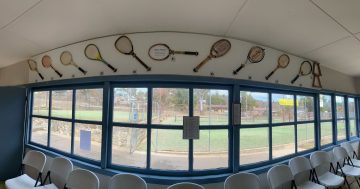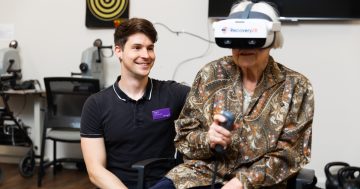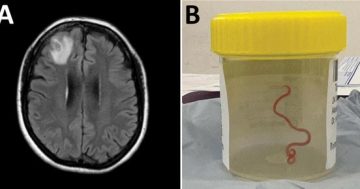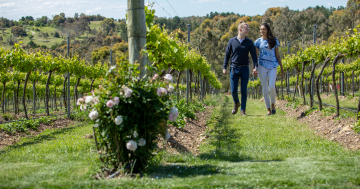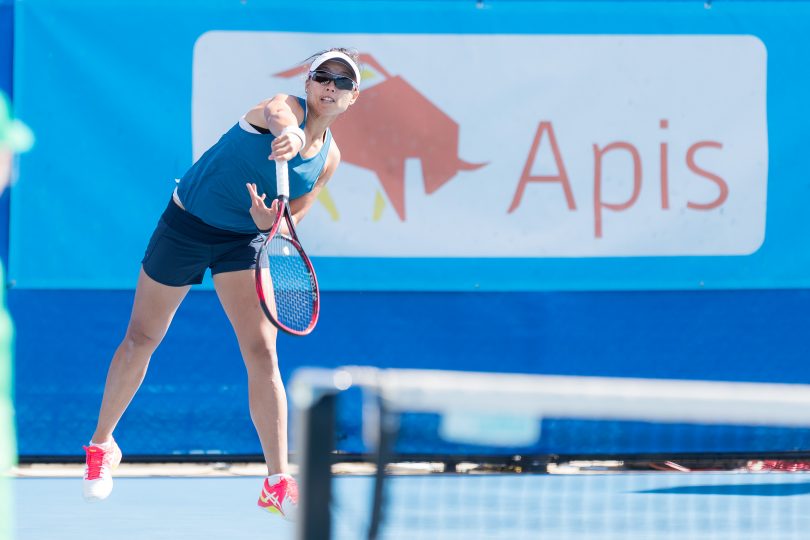
Alison Bai in action at the Apis Canberra International held in Bendigo in January. Photo: Ben Southall.
Alison Bai is experiencing an almost ‘normal’ life for the first time in over a decade, confined to Canberra because of the COVID-19 shutdown.
As a professional tennis player, on average, Alison spends seven to eight months of the year on the gruelling international tennis circuit, travelling from tournament-to-tournament around the world.
This could be perceived as a glamorous lifestyle, traversing the globe playing tennis in exotic locations. But the reality is, it’s tough.
Players such as Alison have to make ends meet on the tour. The majority barely earn above minimum wage. She has spent 13 years on the circuit and her entire career earnings through prize money currently stand at around $200,000. That’s a bit over $15,000 a year, so assistance from family and friends to pay for flights and the basics is required.
Then there are the constants: coping with injuries and battling to maintain form.
For Alison, it’s all she’s known since venturing onto the circuit as a 17-year-old. That was 13 years ago, and the COVID-19 shutdown has forced her to question her future on the pro tour.
“I’m home in Canberra now. It provides a chance to reflect, to see if I want to go back on tour. It’s given me an opportunity to compare my lifestyle with normal life: working, studying and being at home.”
Studying law at the University of Canberra has been something of a distraction with the tennis circuit on hold during COVID-19.
“I have a Bachelor of Commerce degree from Monash. Now I am part of the Elite Athlete Program whilst studying law at UC,” says Alison.
“Because of the shutdown, the course is online and we have tutorials twice a week. UC allows me flexibility to do the course because I am usually travelling so much.”
As part of the adjustment to life at home, Alison says she is preparing for her first winter in Canberra since she was 17 years old. Prior to going on the tour she had been regarded as one of the top up and coming players in the juniors in Canberra, winning the under 12-years nationals and playing in the prestigious Bruce Cup.
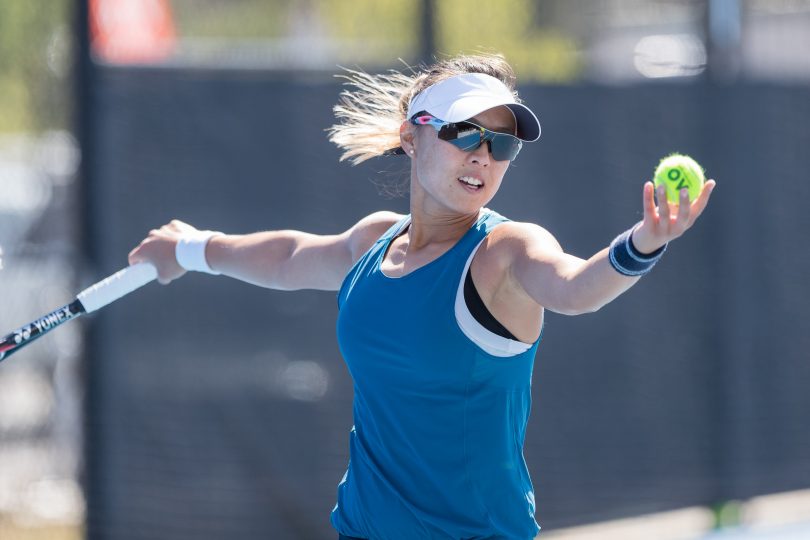
Alison Bai contemplates her career as she is forced to stay at home during the COVID-19 shutdown. Photo: Ben Southall.
Now aged 30 and experiencing, to some extent, what a normal life can be like, she is starting to think about an existence beyond the circuit.
But, as she qualifies, “it depends on how long the COVID-19 shutdown continues; living a normal life may be an option”.
Alison has had somewhat of a resurgence as a doubles player as she gets older, with her doubles ranking currently standing around 128.
In this period of contemplation though, she is also realising how much she misses tennis, and this new ‘normal’ is something that she barely recognises: “I haven’t been in the one spot for such an expended period of time for years.”
So after the COVID-19 restrictions are lifted, Alison has some decisions to make.
I suspect the life she has known for as long as she can remember is going to be hard to walk away from.
Original Article published by Tim Gavel on The RiotACT.







